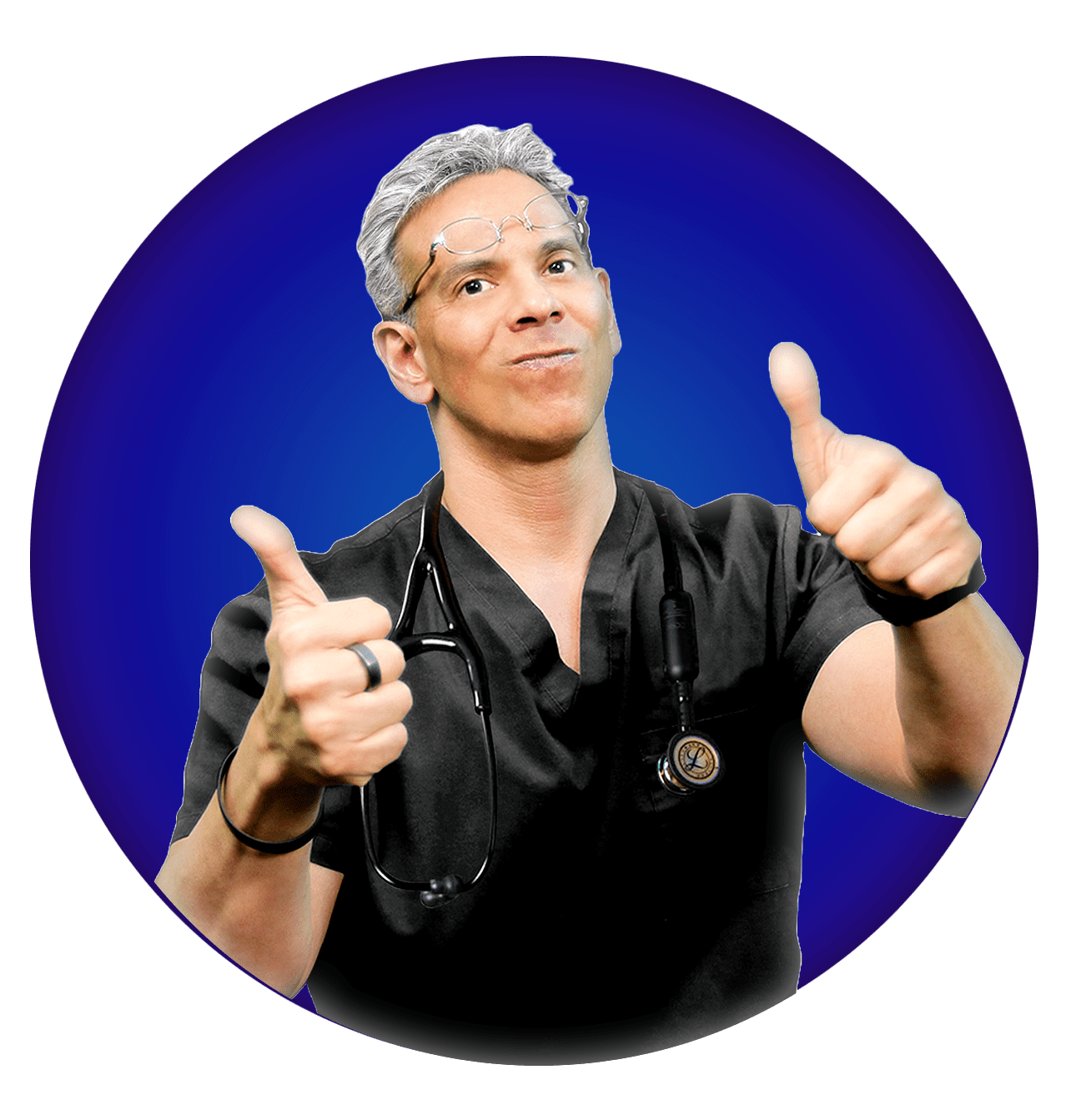Find comprehensive GI disorder treatment solutions designed to help alleviate discomfort and promote digestive wellness.
What Are GI Disorders?
How often does eating a big meal make you feel bloated? Do you suffer from intestinal inflammation or constipation? Or do you feel as if your muscles and joints are stiff? A lot of individuals are unaware that environmental variables may have an effect on their gastrointestinal system and extend their influence to the musculoskeletal system, generating pain-like symptoms that often resemble musculoskeletal illnesses and creating several overlapping risk profiles in the body. Depending on their severity, gastrointestinal (GI) problems may be difficult to treat and have serious medical and social repercussions. They are often frequent. (Malone and others, 2018) Small intestine bacterial overgrowth (SIBO), gastroesophageal reflux disease (GERD), and irritable bowel syndrome (IBS) are a few prevalent GI disorders. In the musculoskeletal system, GI issues may exacerbate muscle dysfunction, joint stiffness, and chronic pain. Many people might search for practical, non-surgical solutions that can alleviate and enhance their quality of life by comprehending the relationship between the stomach and the musculoskeletal system.
How GI Disorders Affect The Gut & Musculoskeletal System
Many individuals question how environmental variables might impact their muscles and intestines, and they play a significant role in the development of GI illnesses. One environmental component that might have an impact on the muscles and intestines is stress. A person’s physical and mental health may be impacted by stress, which can alter how the gut bacteria react and result in gastrointestinal diseases. In 2011, Konturek et al.
Inflammation & Systemic Effects
Inflammation develops and adheres to the damaged region when GI diseases begin to impact the body, resulting in problems with the stomach. When inflammation starts to interfere with the gastrointestinal system, it may cause low-grade inflammation, compromise the integrity of the gut barrier, and interfere with normal food and nutrient digestion. (Casini and others, 2024) This may result in inflammatory chronic gastrointestinal disorders such as ulcerative colitis or Crohn’s disease. By releasing cytokines and inflammatory mediators into the bloodstream, this may then cause systemic inflammation in the musculoskeletal system, resulting in symptoms including tiredness, joint stiffness, and muscle soreness.
Nutrient Malabsorption & Deficiencies
Muscle cramps, weakness, and joint pain that are often misdiagnosed as fibromyalgia or arthritis might result from deficiencies in vital vitamins and minerals caused by conditions including celiac disease, inflammatory bowel disease, and persistent diarrhea.
Gut Dysbiosis & The Nervous System
The neurological system and the stomach, often referred to as the “second brain,” have a special connection. An imbalance in gut bacteria (dysbiosis) may lead to the development of a leaky gut since the gut contains trillions of bacteria and aids in the transportation of nutrients from meals to various systems. This makes it possible for poisons to enter the blood and set off the immune system. As a result, there is widespread inflammation and musculoskeletal pain, which impacts the quality of life and pain of the musculoskeletal system. In 2024, Cassini et al. Simultaneously, the gut-brain axis regulates muscular contraction and pain perception.
Visceral-Somatic Reflexes & Referred Pain
Referred pain patterns, in which visceral discomfort is felt in the musculoskeletal system, may be caused by gastrointestinal diseases. Visceral pain hypersensitivity is characterized by persistent stomach pain or discomfort (Farmer & Aziz, 2009). For instance, IBS may produce lower back and pelvic pain because of visceral-somatic responses, but GERD can cause chest and upper back pain.
Fighting Inflammation Naturally: Video
Functional & Nonsurgical Approaches To Reduce GI Pain
When treating GI issues linked to musculoskeletal complaints, many patients begin by looking into holistic and functional methods to lessen the severe symptoms. In order to create a personalized treatment plan, many patients may visit non-surgical therapies to talk with a pain expert about their problems. The following are non-surgical, evidence-based methods for treating musculoskeletal and intestinal discomfort:
Dietary Modifications
A nutritious diet may be the first step in making little adjustments to enhance gut health. A nutritious food may help the body develop, mend, and produce energy. It can also influence and control a number of vital bodily processes, including hormones in the gastrointestinal tract. El-Salhy (2019). By eliminating trigger meals that result in overlapping pain sensations, including foods high in omega-3s and polyphenols may help lessen the inflammatory effects from the stomach. GI problems may benefit from the following diets:
Elimination Diet for Anti-Inflammatory Conditions
The FODMAP Diet
Pro-& Prebiotics
In terms of gut health, probiotics and prebiotics may aid in the restoration and balancing of the bacterial flora in the gut. While prebiotics include meals high in fiber to nourish the good bacteria and promote gut health, probiotics include good bacteria that help balance the gut microbiota and lower inflammation. By including these two, intestinal inflammation may be avoided by restoring the dynamic equilibrium between the host defense systems and bacteria inside the intestinal mucosa. (Dhaneshwar and Roy, 2023)
Stress Management
The body may relax and the tight muscles can be relaxed by reducing environmental stresses that lead to GI issues and musculoskeletal discomfort. Among the methods that individuals may use are:
Mindfulness & Meditation: Progressive muscular relaxation, yoga, and deep breathing may all help people feel less discomfort and less sensitive to their stomach.
Cognitive behavioral therapy (CBT) may enhance pain tolerance and assist control GI symptoms brought on by stress.
Manual Therapies
GI issues linked to musculoskeletal discomfort may be alleviated using manual therapy. To assist strengthen and stretch weak muscle groups and lessen the body’s inflammatory effects, massage therapists, physical therapists, and chiropractors may use a variety of treatments. Here are a few of these interventions:
Osteopathic manipulative therapy (OMT): Enhances gastrointestinal motility and relieves referred pain.
Visceral Manipulation: A manual treatment that eases abdominal constriction, enhancing digestion and reducing physical stress.
Massage therapy: Can ease back and abdominal muscular tension and lessen gastrointestinal symptoms associated with stress.
Acupuncture
By promoting the autonomic nervous system, acupuncture has been shown to enhance stomach motility and lessen discomfort associated with IBS. In order to alleviate a patient, acupuncturists insert tiny, thin needles into different bodily acupoints. In addition to neuromodulation, acupuncture also modifies and repairs the intestinal barrier and gut bacteria. (Li and others, 2023)
Conclusion
The musculoskeletal system and gastrointestinal illnesses interact in a unique way because their risk profiles overlap and correlate. Treatments to lessen GI issues may be more successful when this relationship is understood. Functional, non-surgical methods including movement-based treatments, manual therapies, stress management, gut microbiota maintenance, and dietary modifications may provide comprehensive relief from GI-related musculoskeletal pain.These little adjustments to a person’s daily schedule, such as regular exercise or a balanced diet, may help address the underlying cause of dysfunction and provide long-lasting relief and enhanced wellbeing.
Injury Medical & Functional Medicine Clinic
We associate with certified medical providers who understand the importance of the effects of GI disorders on not only the gut system but also the musculoskeletal system. While asking important questions to our associated medical providers, we advise patients to implement small changes like physical activities and small dietary changes to their diet to reduce the chances of GI disorders from returning. Dr. Alex Jimenez, D.C., envisions this information as an academic service. Disclaimer.
References
Casini, I., Massai, L., Solomita, E., Ortenzi, K., Pieretti, S., & Aloisi, A. M. (2024). Gastrointestinal Conditions Affect Chronic Pain and Quality of Life in Women. Int J Environ Res Public Health, 21(11). https://doi.org/10.3390/ijerph21111435
El-Salhy, M. (2019). Nutritional Management of Gastrointestinal Diseases and Disorders. Nutrients, 11(12). https://doi.org/10.3390/nu11123013
Farmer, A. D., & Aziz, Q. (2009). Visceral pain hypersensitivity in functional gastrointestinal disorders. Br Med Bull, 91, 123-136. https://doi.org/10.1093/bmb/ldp026
Konturek, P. C., Brzozowski, T., & Konturek, S. J. (2011). Stress and the gut: pathophysiology, clinical consequences, diagnostic approach and treatment options. J Physiol Pharmacol, 62(6), 591-599. https://www.ncbi.nlm.nih.gov/pubmed/22314561
Li, X., Liu, S., Liu, H., & Zhu, J. J. (2023). Acupuncture for gastrointestinal diseases. Anat Rec (Hoboken), 306(12), 2997-3005. https://doi.org/10.1002/ar.24871
Malone, M., Waheed, A., & Samiullah, S. (2018). Functional Gastrointestinal Disorders: Functional Lower Gastrointestinal Disorders in Adults. FP Essent, 466, 21-28. https://www.ncbi.nlm.nih.gov/pubmed/29528206
Roy, S., & Dhaneshwar, S. (2023). Role of prebiotics, probiotics, and synbiotics in management of inflammatory bowel disease: Current perspectives. World J Gastroenterol, 29(14), 2078-2100. https://doi.org/10.3748/wjg.v29.i14.2078
Disclaimer
Post Disclaimers
General Disclaimer, Licenses and Board Certifications *
Professional Scope of Practice *
The information herein on "GI Disorders Treatment Approaches You Should Know" is not intended to replace a one-on-one relationship with a qualified health care professional or licensed physician and is not medical advice. We encourage you to make healthcare decisions based on your research and partnership with a qualified healthcare professional.
Blog Information & Scope Discussions
Welcome to El Paso's Premier Wellness and Injury Care Clinic & Wellness Blog, where Dr. Alex Jimenez, DC, FNP-C, a Multi-State board-certified Family Practice Nurse Practitioner (FNP-BC) and Chiropractor (DC), presents insights on how our multidisciplinary team is dedicated to holistic healing and personalized care. Our practice aligns with evidence-based treatment protocols inspired by integrative medicine principles, similar to those on this site and on our family practice-based chiromed.com site, focusing on naturally restoring health for patients of all ages.
Our areas of multidisciplinary practice include Wellness & Nutrition, Chronic Pain, Personal Injury, Auto Accident Care, Work Injuries, Back Injury, Low Back Pain, Neck Pain, Migraine Headaches, Sports Injuries, Severe Sciatica, Scoliosis, Complex Herniated Discs, Fibromyalgia, Chronic Pain, Complex Injuries, Stress Management, Functional Medicine Treatments, and in-scope care protocols.
Our information scope is multidisciplinary, focusing on musculoskeletal and physical medicine, wellness, contributing etiological viscerosomatic disturbances within clinical presentations, associated somato-visceral reflex clinical dynamics, subluxation complexes, sensitive health issues, and functional medicine articles, topics, and discussions.
We provide and present clinical collaboration with specialists from various disciplines. Each specialist is governed by their professional scope of practice and their jurisdiction of licensure. We use functional health & wellness protocols to treat and support care for musculoskeletal injuries or disorders.
Our videos, posts, topics, and insights address clinical matters and issues that are directly or indirectly related to our clinical scope of practice.
Our office has made a reasonable effort to provide supportive citations and has identified relevant research studies that support our posts. We provide copies of supporting research studies upon request to regulatory boards and the public.
We understand that we cover matters that require an additional explanation of how they may assist in a particular care plan or treatment protocol; therefore, to discuss the subject matter above further, please feel free to ask Dr. Alex Jimenez, DC, APRN, FNP-BC, or contact us at 915-850-0900.
We are here to help you and your family.
Blessings
Dr. Alex Jimenez DC, MSACP, APRN, FNP-BC*, CCST, IFMCP, CFMP, ATN
email: [email protected]
Multidisciplinary Licensing & Board Certifications:
Licensed as a Doctor of Chiropractic (DC) in Texas & New Mexico*
Texas DC License #: TX5807, Verified: TX5807
New Mexico DC License #: NM-DC2182, Verified: NM-DC2182
Multi-State Advanced Practice Registered Nurse (APRN*) in Texas & Multi-States
Multi-state Compact APRN License by Endorsement (42 States)
Texas APRN License #: 1191402, Verified: 1191402 *
Florida APRN License #: 11043890, Verified: APRN11043890 *
Colorado License #: C-APN.0105610-C-NP, Verified: C-APN.0105610-C-NP
New York License #: N25929, Verified N25929
License Verification Link: Nursys License Verifier
* Prescriptive Authority Authorized
ANCC FNP-BC: Board Certified Nurse Practitioner*
Compact Status: Multi-State License: Authorized to Practice in 40 States*
Graduate with Honors: ICHS: MSN-FNP (Family Nurse Practitioner Program)
Degree Granted. Master's in Family Practice MSN Diploma (Cum Laude)
Dr. Alex Jimenez, DC, APRN, FNP-BC*, CFMP, IFMCP, ATN, CCST
My Digital Business Card
Licenses and Board Certifications:
DC: Doctor of Chiropractic
APRNP: Advanced Practice Registered Nurse
FNP-BC: Family Practice Specialization (Multi-State Board Certified)
RN: Registered Nurse (Multi-State Compact License)
CFMP: Certified Functional Medicine Provider
MSN-FNP: Master of Science in Family Practice Medicine
MSACP: Master of Science in Advanced Clinical Practice
IFMCP: Institute of Functional Medicine
CCST: Certified Chiropractic Spinal Trauma
ATN: Advanced Translational Neutrogenomics
Memberships & Associations:
TCA: Texas Chiropractic Association: Member ID: 104311
AANP: American Association of Nurse Practitioners: Member ID: 2198960
ANA: American Nurse Association: Member ID: 06458222 (District TX01)
TNA: Texas Nurse Association: Member ID: 06458222
NPI: 1205907805
| Primary Taxonomy | Selected Taxonomy | State | License Number |
|---|---|---|---|
| No | 111N00000X - Chiropractor | NM | DC2182 |
| Yes | 111N00000X - Chiropractor | TX | DC5807 |
| Yes | 363LF0000X - Nurse Practitioner - Family | TX | 1191402 |
| Yes | 363LF0000X - Nurse Practitioner - Family | FL | 11043890 |
| Yes | 363LF0000X - Nurse Practitioner - Family | CO | C-APN.0105610-C-NP |
| Yes | 363LF0000X - Nurse Practitioner - Family | NY | N25929 |
Dr. Alex Jimenez, DC, APRN, FNP-BC*, CFMP, IFMCP, ATN, CCST
My Digital Business Card








Comments are closed.